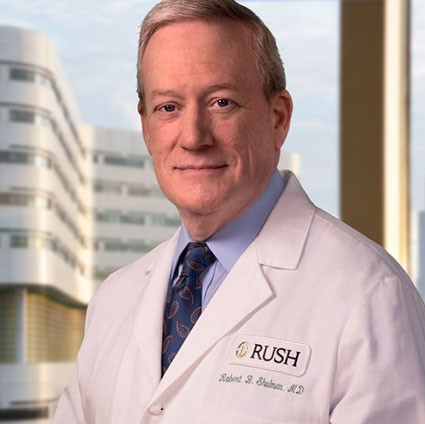There is great hope and are effective cures to treat people who experience symptoms from trauma or PTSD. Often people have the misperception that PTSD is a chronic, life-time condition. Not so; with treatment, most people can be cured or helped to manage their symptoms so as to return to a productive life.
Robert Shulman, MD is the director of the Road Home Program at Rush University Medical Center, part of the Wounded Warrior Project's Warrior Care Network.
For information about treatments for PTSD please visit The Treatment Hub.
In terms of common misperceptions among patients or other clinicians, one is that PTSD is chronic and lifelong. That is a misconception. One can be cured. We are seeing it. Whether it’s a cure or whether we put people into a state of remission, we’ve seen these remitted states lasting now for years since we initiated the program with certain vets. So there’s hope, there’s hope that for treatment, there’s hope for a recovery, there’s hope for wellness in individuals who are otherwise really sort of tortured by their experiences in some regards. So that is one misconception that we’d like to correct, that there is hope, there are cures, there are ways of dealing with the condition that can return one to a productive life. BrainLine is powered in part by Wounded Warrior Project to honor and empower post-9/11 injured service members, veterans, and their families.
About the author: Robert B. Shulman, MD
Robert Shulman, MD is the Director of Road Home Program and currently acting chair of the Department of Psychiatry and Behavioral Sciences at Rush University Medical Center and Mental Health Service Line Director for the Rush University System for Health. He is a graduate of Lewis & Clark College and The Chicago Medical School (with many clinical rotations at the VA Hospital).

